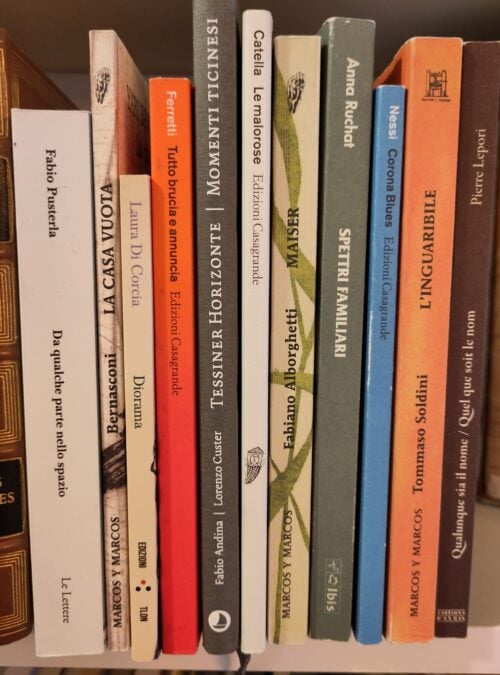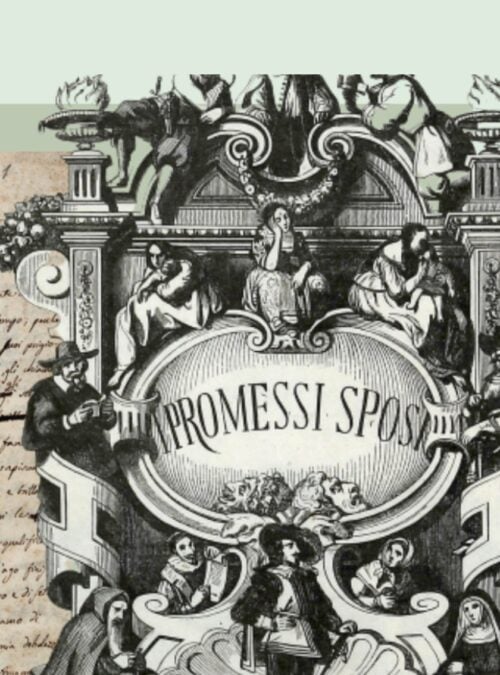‘Dear Linder…’ Histories of texts and editions in the ALI – Erich Linder Archive
Author: Monica Zanardo, University of Padua

Authors, publishers, translators, foreign agents… in the middle decades of the 20th century, all those who worked in the world of books couldn’t ignore Erich Linder, a true “grey eminence” of Italian publishing. Born in Lviv on 4 July 1924, Linder began working after the Second World War for ALI (Agenzia Letteraria Internazionale), Italy’s first literary agency, founded in 1898 by Augusto Foà and later directed by his son Luciano, who recruited Linder as a collaborator in 1946, training him in the profession of literary agent and cultivating his innate talent. In 1951, when Luciano Foà took up the post of editorial director at Einaudi, Linder took over the management of ALI and remained at the head of the agency until his death in 1983.
Over the course of his career, Linder represented around 60% of Italian authors, in a panorama where, unlike elsewhere, ALI had a virtual monopoly on national publishing, so much so that, alongside the figure of the publisher as a protagonist (see G. Ferretti, Storia dell’editoria italiana, 2004), the figure of the agent as a protagonist should also be placed: without a doubt, Erich Linder. Respected and feared by the main national publishers (to the point of being called “the publisher’s publisher”), recognised and identified by foreign agents as their main, if not exclusive, interlocutor (his contribution to the penetration of Italian literature abroad and of foreign literature in Italy is undeniable), Linder was an unavoidable point of reference, especially for Italian authors. As several studies have shown (see, at least, L’agente (segreto) letterario da Erich Linder a oggi, published by FAAM, 2004; and the accurate biography by D. Biagi, Il dio di carta, 2007), the agent worked not only to protect the rights of the authors he represented – earning himself the reputation of the “trade unionist of authors” – but also to accompany and guide them in a more astute management of their literary heritage.
The ALI – Erich Linder archive, kept in Milan at the Fondazione Arnoldo e Alberto Mondadori (FAAM), testifies to the intelligence, mastery and astuteness with which Linder carried out his role. It documents around forty years of ALI activity (mainly from 1942 to 1984) and, through the correspondence between the agency and Italian and foreign authors, agents and publishers, offers a privileged perspective on the background to Italian publishing in the 20th century.
The PRIN 2022 project (Projects of Significant National Interest) ‘Dear Linder…‘ Histories of texts and editions in the ALI – Erich Linder Archive was born from the awareness of the exceptional nature of this archive fund. It is financed by the MUR and directed by Monica Zanardo of the University of Padua in collaboration with the research unit of the State University of Milan, coordinated by Virna Brigatti. The aim of the project is twofold: on the one hand, to take forward the cataloguing of the collection and, on the other, to improve the philological information that can be extracted from these materials.
The first objective is linked to an extensive mapping of the collection. The detailed inventory, which is available online, offers a filing system organised by annual series, with a subdivision into files dedicated to persons or organisations, and undoubtedly provides a fundamental key to accessing the materials, particularly for the files dedicated to authors. In view of its considerable size (37,126 files), the inventory does not currently provide information on the consistency (even quantitative) of the individual files, nor on their contents. The aim of the inventory – which does not aim to cover all the documents in the short term – is to enrich the existing inventory by indicating, for each letter, the sender, the addressee, the date and, above all, the persons, institutions and works mentioned or quoted in the letters. For this reason, during the registration phase, priority was given to the files in the name of the publishers, starting with the most important ones: the researcher interested in a particular author (or a particular work) will thus be able to find, without having to search through thousands of documents, a letter in which a certain author or a certain work is mentioned, even outside the file in the name of the specific author.
The second objective is linked to the desire to bring out the stories of texts and editions (hence the subtitle of the project) that these papers can recount. The ALI – Erich Linder Fund is essentially a business archive, and there are many exchanges of an administrative nature (contracts, statements, expense accounts…). However, there are also materials with considerable critical-hermeneutic potential. Some authors confided in Linder about projects in progress or asked for his opinion on their production; others discussed the translations of their works with him, accepting or rejecting translators, editors or – even – going into the details of translation choices, explaining and justifying the deep-seated reasons for their works; they sent Linder unpublished works and asked him for advice, or even for timely editing. Linder also played an active role in mediating the penetration of foreign literature in Italy: he did not limit himself to choosing the titles and authors to be published (which were assigned at his discretion to the various national publishers), but in some cases he intervened in the choice of content, prefaces, translators… Finally, the heirs of an author turn to the agent, who is called upon to manage the posthumous distribution of his work and the rights to it.
This fund is thus a valuable source of information on the cultural landscape of the central decades of the 20th century, as confirmed by the research group’s current and planned activities.










